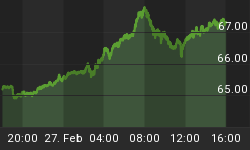Devaluation Could Alter Fed's Timing

The longer you invest, the more you realize the extremely important role central bank policy plays in the global financial markets cannot be overstated. China's recent currency devaluation puts additional pressure on other central bankers. From Bloomberg:
China's move has raised the risk of a "currency war" as export rivals seek a weaker exchange rate to stay competitive, according to Stephen Roach, a senior fellow at Yale University and former non-executive chairman for Morgan Stanley in Asia. "It's hard to believe this will be a one-off adjustment," Roach said. "In a weak global economy, it will take a lot more than a 1.9 percent devaluation to jump-start sagging Chinese exports. That raises the distinct possibility of a new and increasingly destabilizing skirmish in the ever-widening global currency war. The race to the bottom just became a good deal more treacherous."
What Is The Race To The Bottom?

All things being equal, a weaker currency tends to help drive exports and a stronger currency tends to be a drag on exports. Therefore, the "race to the bottom" refers to the ongoing battle between countries to keep their currencies weak and their exports strong. From The Financial Times:
"There is a race to the bottom in currency markets. Just when many thought interest rates could go no lower, they do just that. Central banks are locked into a lower rates contest. Switzerland has reached minus 0.75 per cent. Denmark has had four rate cuts recently. Sweden also has negative rates, and the Bank of England's chief economist recently opined that the UK's 0.5 per cent base rate, unchanged since March 2009, could be too high rather than too low."
The Same Logic Applies To U.S. Exports
In currency markets, everything is relative. If country A devalues, it impacts the value of other countries' currencies. Therefore, if other countries are going down an "easier money" path and the Federal Reserve is heading down a "tighter monetary" path, it puts upward pressure on the U.S. dollar (assuming the market believes the Fed will raise rates). From Bloomberg:
As recently as April, other central bankers were speaking confidently that China wouldn't devalue. This puts pressure on them to follow suit. China's currency move also could pose a challenge for the U.S. Federal Reserve. The Fed is preparing to raise U.S. interest rates later this year. One source of concern for the Fed this year has been a strong U.S. dollar, which is squeezing exports and helping to hold U.S. inflation below the Fed's 2% target. China's move puts more upward pressure on the dollar, which could be exacerbated further when the Fed actually raises rates.
Big Picture Calls For Flexibility
The comment made on Twitter below sums up the topic of this week's stock market video.

Bullish Outcomes Harder To Imagine
It is easy to understand the bearish case: earnings have been disappointing, economic growth is tepid, the Fed is close to raising interest rates, momentum is weak, market breadth is concerning, etc. It is more difficult to respect the bullish case.
Long-Term Breakout Still In Play
We have already noted that China's recent move in the currency markets may extend the period of easy money and push Fed action into 2016. Is there any other basis for keeping an open mind about better than expected outcomes? Yes, the chart of the New York Stock Exchange Composite Stock Index below shows resistance in 2007 (red arrow) and a bullish breakout in 2014. The bullish breakout was recently tested (green arrow).

A June 2015 video explains the importance of the bullish breakout above from two important perspectives: (1) recency bias and (2) market fractals.
Possible Support Close By
As shown in the chart below, another bullish hurdle was crossed in 2013; it has since been retested several times (green arrows). In the last six weeks, the NYSE Composite Stock Index has dropped back to the green trendline and held. As long as the NYSE Composite stays above 10,600, it is prudent to remain open to better than expected outcomes. If 10,600 does not hold, then the longer stocks remain below that level, the more concerning it becomes. On August 11, 2015, the market was trading at 10,783.

Investment Implications - Game Plans For All Outcomes
With a Fed speaker coming before Wednesday's open, the outcome for stocks this week remains in the TBD category. Given the mixed nature of the intermediate-term outlook, it remains prudent to have "how will I handle" plans for both a big drop in stocks and a sharper than expected rally.















